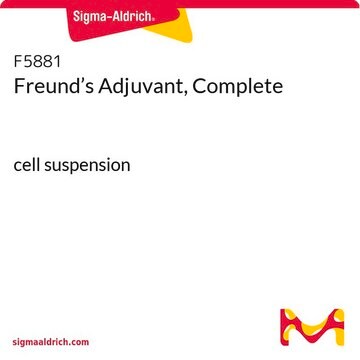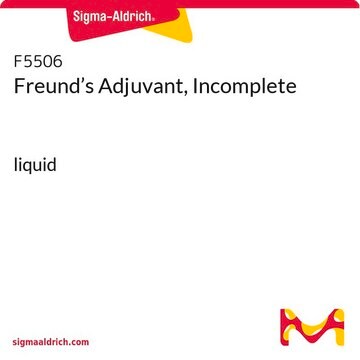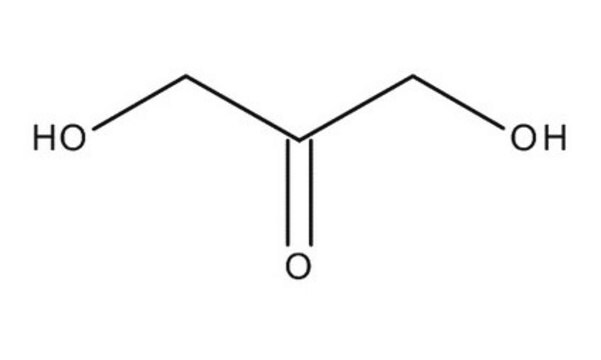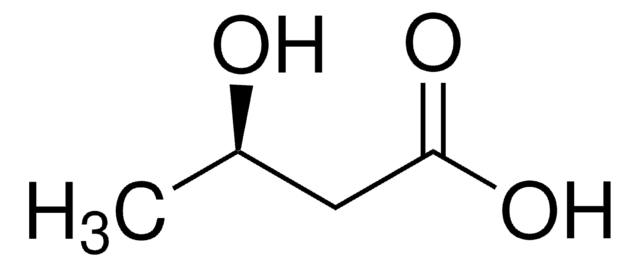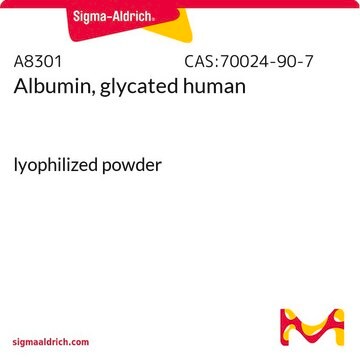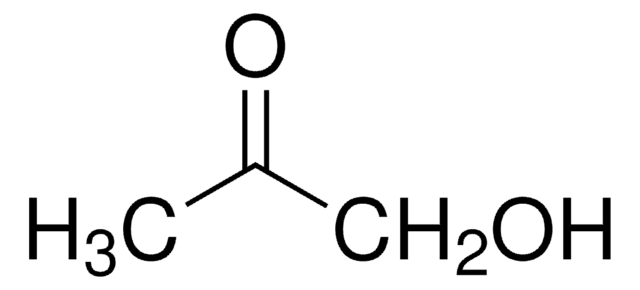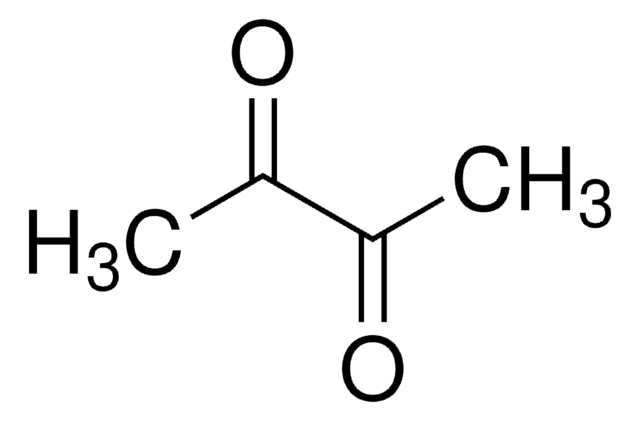67028
Methylglyoxal solution
technical, ~40% in H2O
Synonym(s):
Acetylformaldehyde, Pyruvaldehyde, Pyruvic aldehyde
Sign Into View Organizational & Contract Pricing
All Photos(1)
About This Item
Linear Formula:
CH3COCHO
CAS Number:
Molecular Weight:
72.06
Beilstein:
906750
MDL number:
UNSPSC Code:
12352100
PubChem Substance ID:
NACRES:
NA.22
Recommended Products
grade
technical
Quality Level
concentration
~40% in H2O
density
1.19 g/mL at 20 °C
functional group
aldehyde
ketone
storage temp.
2-8°C
SMILES string
[H]C(=O)C(C)=O
InChI
1S/C3H4O2/c1-3(5)2-4/h2H,1H3
InChI key
AIJULSRZWUXGPQ-UHFFFAOYSA-N
Looking for similar products? Visit Product Comparison Guide
Related Categories
General description
Methylglyoxal is a toxic endogenous by-product of glycolysis. It is a reactive dicarbonyl compound that promotes non-enzymatic glycation of proteins to yield irreversible advanced glycated end products, leading to the cross-linking or degradation of proteins.
Application
Methylglyoxal solution is used in cytotoxic studies.
Signal Word
Danger
Hazard Statements
Precautionary Statements
Hazard Classifications
Eye Dam. 1 - Met. Corr. 1 - Muta. 2 - Skin Sens. 1
Storage Class Code
8A - Combustible corrosive hazardous materials
WGK
WGK 1
Flash Point(F)
Not applicable
Flash Point(C)
Not applicable
Personal Protective Equipment
dust mask type N95 (US), Eyeshields, Gloves
Choose from one of the most recent versions:
Already Own This Product?
Find documentation for the products that you have recently purchased in the Document Library.
Customers Also Viewed
Potential Neuroprotective and Anti-Apoptotic Properties of a Long-Lasting Stable Analog of Ghrelin: an In Vitro Study Using SH-SY5Y Cells.
Popelova A, et al.
Physiological Research, 67(2), 339-346 (2018)
Determination of methylglyoxal in human blood plasma using fluorescence high performance liquid chromatography after derivatization with 1, 2-diamino-4, 5-methylenedioxybenzene.
Ogasawara Y, et al.
Journal of Chromatography. B, Biomedical Sciences and Applications, 1029, 102-105 (2016)
Computational and experimental exploration of the structure?activity relationships of flavonoids as potent glyoxalase?I inhibitors.
Al?Balas Q A, et al.
Drug Development Research, 79(2), 58-69 (2018)
Naila Ahmed et al.
Investigative ophthalmology & visual science, 44(12), 5287-5292 (2003-11-26)
To determine the concentrations of methylglyoxal-derived advanced glycation end-products (AGEs), the hydroimidazolones MG-H1 and -H2, in soluble human lens proteins and compare them with the concentrations of other methylglyoxal-derived AGEs and pentosidine. Lens protein samples were hydrolyzed enzymatically. AGEs were
Nicole Schupp et al.
Annals of the New York Academy of Sciences, 1043, 685-695 (2005-07-23)
In patients with chronic renal failure, cancer incidence is increased. This may be related to an elevated level of genomic damage, which has been demonstrated by micronuclei formation as well as by comet assay analysis. Advanced glycation end products (AGEs)
Our team of scientists has experience in all areas of research including Life Science, Material Science, Chemical Synthesis, Chromatography, Analytical and many others.
Contact Technical Service

